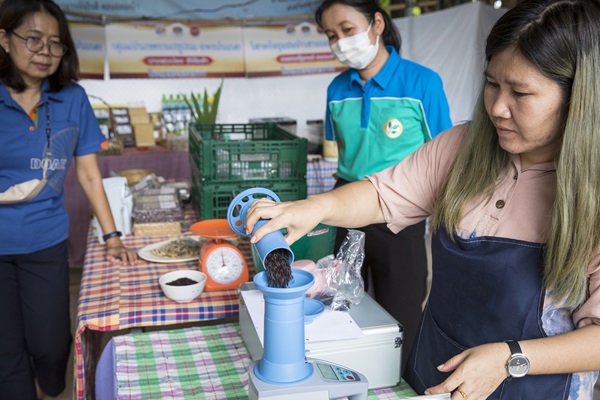Germany
News

Global Forum for Food and Agriculture (GFFA) event| From farm to food donation. How to maximize the potential of preventing harvest losses to ensure food security?
19/01/2024

Strengthening climate resilience, adaptation and mitigation through food loss and waste reduction
01/12/2023

International Day of Awareness of Food Loss and Waste: FAO calls for circular model in agrifood systems
29/09/2023
Articles
Generation and prevention of food waste in the German food service sector in the COVID-19 pandemic – Digital approaches to encounter the pandemic related crisis
26/06/2021
This study examines the two questions: How far has the pandemic affected the generation of food waste and the implementation of prevention measures? How does the use of digital technology, which has been increasingly accessed since the beginning of the pandemic, offer opportunities to further ...
Events
27/ 3
2024
UNEP Food Waste Index Report 2024 - Launch Event
Virtual Event, 27/03/2024
To mark the second annual International Day of Zero Waste, UNEP will launch its Food Waste Index Report 2024 on 27 March 2024. The report provides the latest global ...
29/ 9
2023
International Day of Awareness of Food Loss and Waste | Webcast and Agenda
Rome (Italy), Hybrid Event, 29/09/2023
Take action to reduce food loss and waste toward transforming agrifood systems!
The International Day of Awareness of Food Loss and Waste will make a clear call to action for public and private entities to take action to reduce food loss and waste toward transforming agrifood systems to contribute to the achievement of the 2030 agenda. Get involved!
16/ 11
2022
A Climate Imperative: Getting Countries and Businesses Committed to FLW Reduction
Sharm El-Sheikh (Egypt), Hybrid Event, 16/11/2022
Commitments are required from governments and the private sector to set targets and achieve global reduction of food loss and waste. The event included a diverse set of pledges and highlights the accomplishments of governments, businesses and financial institutions.
Projects
| Title | LEG - National Strategy for Food Waste Reduction |
|---|---|
| Project Code | none |
| SDG(S) |
Publications

Get Involved - International Day of Awareness of Food Loss and Waste
21/08/2021
The International Day of Awareness of Food Loss and Food Waste, observed for the second time on 29 September 2021, will make a clear call to action for both the public (national or local authorities) and the private (businesses) sectors, as well as individuals, to prioritize actions and move ahead with innovation to reduce food loss and waste towards restoring and building back better and resilient-ready, food systems.

Potato | Post-harvest operations
17/05/2001
Potato is an important staple food world-wide, claiming fourth place after maize, rice and wheat. It is a good carbohydrate source in addition to other nutritional benefits. Potatoes are cooked before consumption which reduces the presence of the toxic alkaloid solanine. Developing countries now produce approximately one third of world production, which was 314 million tonnes in 2008 (FAOSTAT).

Wheat: Post-Harvest Operations
14/10/1999
Wheat is widely grown around the world under diverse climatic conditions and has been the staple food of the major civilizations in Europe, Asia and North Africa for 8,000 years. As an important staple food used in a wide variety of products, post-production operations play an important role in creating a stable food supply. Wheat is also used to produce animal feedstuffs, starch and ethanol.
Multimedia
Take action to reduce food loss and waste (FLW) towards transforming global agrifood systems
29/09/2023
The International Day of Awareness of Food Loss and waste (IDAFLW) on 29 September 2023 makes a clear call to action for public and private entities to take action to reduce food loss and waste (FLW) towards transforming global agrifood systems and contributing to achieve the 2030 Agenda goals.
Eight actions we can all take to save water
22/03/2023
Reduce your food waste. It takes a lot of water to produce food and to get it from the field to our plate. Lost and wasted food also means wasted water. Water is vital to us all, so everyone needs to act. Every drop counts and your actions, big or small, can make a difference.
Food loss and waste are among the main causes of climate change
29/09/2022
Every year, around 14 percent of the world’s food is lost after harvest and in the distribution chain prior to retail, and an additional 17 percent of food available to consumers is wasted. Food loss and waste account for 8 to 10 percent of the world’s greenhouse gas emissions. Carbon dioxide i...
How to tackle food loss and waste
14/10/2019
Although there may be an economic loss, food diverted to other economic uses, like animal feed, is not considered as food loss or waste, nor are the inedible parts of food products.
